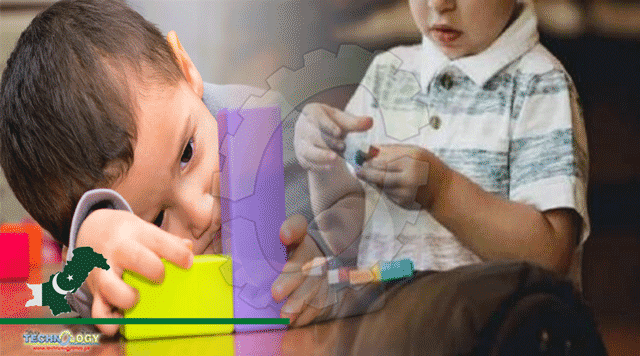The department of psychology in collaboration with the Pakistan Center for Autism organized a day-long international conference “Inclusion in the workplace: Challenges and Opportunities in Post Pandemic World” to create awareness regarding the Autism spectrum disorder (ASD).

The department of psychology in collaboration with the Pakistan Center for Autism organized a day-long international conference “Inclusion in the workplace: Challenges and Opportunities in Post Pandemic World” to create awareness regarding the Autism spectrum disorder.
The event was held here at the Arts Auditorium of the University of Karachi on Thursday.
Dr Mansur Choudhry from the University of Oklahoma USA while sharing data from the World Health Organization informed the audience that about one in 160 children has an ASD and mentioned that this estimate represents an average figure, and reported prevalence varies substantially across studies. Some well-controlled studies have, however, reported substantially higher figures.
He said that the prevalence of ASD in many low and middle-income countries is unknown and added that according to the survey done by the Center for Disease Control USA in 2014, 1 in 59 children have been identified with ASD.
Dr Choudhry observed”Autism is the fastest-growing developmental disability. He said that in 2021, the CDC reported that approximately one in 44 children in the US is diagnosed with ASD and boys are four times more likely to be diagnosed with autism than girls.” Dr Mansur Choudhry added that Hong Kong is at the top position where one out of every 27 children has been diagnosed with autism. Followed by Hong Kong is South Korea where one out of 38 children is being diagnosed with autism.
The chief guest and renowned child specialist Professor Dr Ghaffar Billo shared that Pakistan is among those developing countries which still do not have population-based data on autism. It was estimated in 2019 that out of every 120 children, one is diagnosed with autism. He mentioned that 35 percent of young adults (ages 19-23) with autism have not had a job or received postgraduate education after leaving high school.
He talked about neglect in autism care and stressed that national and international conferences should be held every year not only in Karachi or other major cities but across the country. Dr Billo highlighted social disruption in society and informed the audience that bonding with mothers has been decreased.
“It is a big dilemma of society that mother gives electronic devices to a child so that he or she could eat. An autistic child gets only 15 percent improvement after being diagnosed and later give better results if he or she has family support and bounding.” Meritorious Professor Dr Iqbal Afridi discussed the history of autism and shared that medications are suggested after examining the symptoms and behavior of an ASD child. He mentioned that besides medicines, described diet and therapy, which maximizes functioning and reduces dependability, is useful for ASD children.
Professor Dr Anjum Bano Kazmi of Iqra University and Dean College of Paeds and Child Health UCHS-CS Professor Dr Shazia Maqbool, observed the prevalence of neurodevelopmental conditions among children of the entire world is continuously increasing.
According to them, these conditions include ASD, ADHD, CP, intellectual disability, and developmental disorders. The challenges faced by these children are associated with significant consequences in their societies. Their limitations impact various health outcomes including the development of motor skills, social learning, and mental wellness of child and family as well.
The Chairperson Department of Psychology Professor Dr Qudsia Tariq mentioned that during Covid-19 it came up that there were a lot of issues between the parents and children, there was a communication gap, and a lot of expectations may be attached to the children. With this reference, this conference was organized on autism awareness to remove the stigma related to differently-abled children.
She said that this conference aims to increase the awareness of autism and to speak about how all differently-abled individuals have to face stigma and the community and society need to work together to remove the stigma.
The Director PCA Sajida Ali shared that inclusion is the act of accommodating everybody with equivalent chances and reservoirs. A diverse and all-inclusive working environment makes everybody, regardless of what their identity is or what they accomplish for the business, feel equally associated with and supported in every aspect of the working environment.
“The main goal of our time is to include ASD population at our workplaces. The need here is to accept their differences and add them to our society. Our aim should be to provide adaptation of the environment to the ASD population, instead of demanding them to cope with the challenges of a given context themselves exclusively.” Another speaker Saeed Ismaeel while talking about autism awareness told that awareness creates demands if demands are not fulfilled then frustration would be raised. We need to work more on this. Other speakers, Irum Rizwan talked about the leading model for autism services, Dr Salma Khalil shed light on Autism Challenges in Pakistan, Dr Pir Suhail Sarhandi shared his experience on Assistive Technology: A Playing Field for Children with ASD.
Renowned television personality Sania Saeed also participated in the conference. When asked about the role of media in the portrayal of autistic individuals, she stated that it is the unfortunate reality of our times that those who have a stake in creating and broadcasting television programs do not even have the basic knowledge about autism, or any other mental health issues for that matter. This is why they bunch up random symptoms from various disorders to create a mythical “thora sa cracked” character. Instead of helping, this ends up hurting the cause of mental health awareness.
The Chairperson Department of Criminology Professor Dr Farah Iqbal hoped that this event would help us create a platform where current issues could be discussed and resolved for children with autism in Pakistan.
Source: Urdupoint